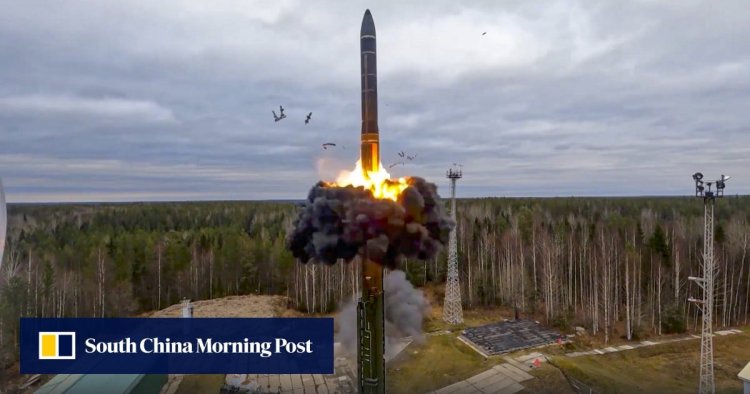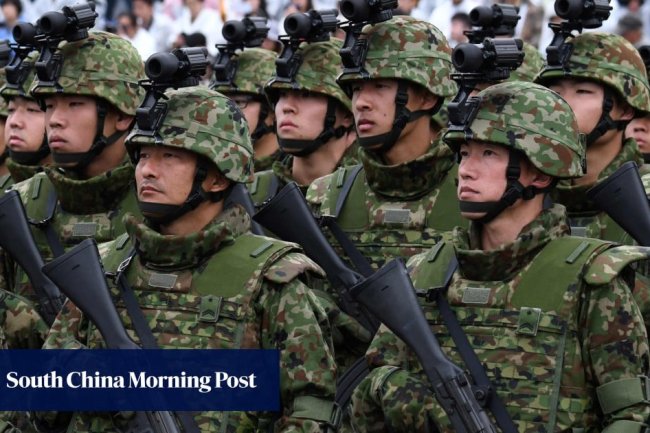Top Biden adviser says new era of nuclear risk dawning in China-Russia alliance
2023.05.06 10:52The deepening cooperation between China and Russia threatens to overturn decades of international stability in nuclear arms control, according to a top adviser to US President Joe Biden.To avert miscalculations, nuclear-weapons states must engage on existing and potential threats, from Iran’s atomic ambitions to the use of artificial intelligence for decision-making during crises, Pranay Vaddi, the National Security Council’s senior director for arms control, said in an interview in Vienna.“We’re entering a different period,” Vaddi said after talks at the International Atomic Energy Agency. “It requires a little bit of experimentation.”Assessments that China is expanding its nuclear arsenal, along with Russia’s invasion of Ukraine and its disavowal of arms-control agreements, are adding to concern about an era fraught with new dangers.Top US spy warns that China would seek to exploit a debt defaultUnlike the Cold War, when the US and Soviet Union maintained atomic parit


The deepening cooperation between China and Russia threatens to overturn decades of international stability in nuclear arms control, according to a top adviser to US President Joe Biden.
To avert miscalculations, nuclear-weapons states must engage on existing and potential threats, from Iran’s atomic ambitions to the use of artificial intelligence for decision-making during crises, Pranay Vaddi, the National Security Council’s senior director for arms control, said in an interview in Vienna.
“We’re entering a different period,” Vaddi said after talks at the International Atomic Energy Agency. “It requires a little bit of experimentation.”
Assessments that China is expanding its nuclear arsenal, along with Russia’s invasion of Ukraine and its disavowal of arms-control agreements, are adding to concern about an era fraught with new dangers.
Top US spy warns that China would seek to exploit a debt default
Unlike the Cold War, when the US and Soviet Union maintained atomic parity and agreed to limit certain types of arms, more nations are developing the technologies and materials needed for weapons of mass destruction. At the same time, Washington’s efforts to keep lines of communication open with China, its biggest emerging competitor, are flailing.
“Going back to the early days of the US-Soviet arms-control relationship, obviously there was an emphasis on risk-reduction measures, including communications measures in crises,” Vaddi said. “That is not a conversation that we have received interest in from Beijing.”
That also has raised questions about “how Russia and China would approach something with Iran,” he said, such as a return to a return to the 2015 accord limiting the Islamic republic’s nuclear programme in return for sanction relief, or something similar.
China and Russia have been deepening nuclear cooperation over key nuclear technologies for weapons, and both countries are stepping up their relationship with Iran.
Trade delegations have been shuttling between the three nations’ capitals, and their navies conducted joint exercises in March. The Islamic Republic is also supplying combat drones for the Kremlin’s invasion of Ukraine.
“That obviously has impacts for how we would approach diplomacy with Iran,” Vaddi said.
There are nevertheless areas where the US can continue to engage with China and Russia on issues of nuclear stability, he said, pointing to the Biden administration’s February declaration on how artificial intelligence should be used in military conflicts.
How Putin’s Belarus nuke plan tangles China’s Ukraine peace push
“States should maintain human control and involvement for all actions critical to informing and executing sovereign decisions concerning nuclear weapons employment,” the document states.
The White House sent Vaddi to Vienna in an effort to kick-start IAEA talks about nuclear security, based on a new US proposal to protect radioactive material from terrorists. Surging global interest in a new generation of small reactors means that the number of nuclear sites in need of protection could multiply in coming years.
“Our hope is that implementation will provide dividends down the road for physical security,” Vaddi said.
What's Your Reaction?













